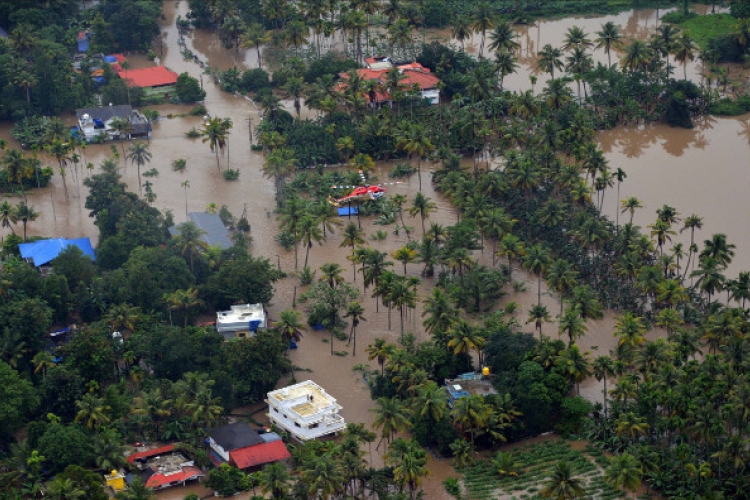Why India refuses foreign aid for Kerala floods?
India refuses foreign aid for Kerala floods
In NEWS
India has made its stand clear that the centre will not accept international assistance in dealing with the aftermath of Kerala floods, and this would include the Rs 700 crore assistance promised by the United Arab Emirates, Qatar Rs 35 crore and Maldives Rs 35 lakh to deal with the huge loss of life and property during the recent floods in Kerala.
India has politely turned down the offer from all three countries. The government’s debate undoubtedly has given rise to a fresh bout of debate on whether India should have refused the money.
Reaction of the state government
The Kerala government is clearly unhappy over the Centre's decision not to accept donations from foreign governments for flood relief operations.
The State government has asked the centre to accept the aid and go by the 2016 National disaster Management Plan. It also emphasized about the special bonds with the emirates and UAE cannot be considered as another nation. The reason behind it is Indians, especially Keralites, have contributed immensely in their nation-building of UAE.
Why India refuses foreign aid?
India is reportedly sticking to its policy of not accepting disaster aid from foreign countries, instead depending solely on domestic resources.
India had evolved from its self image, growing confidence over its own capacity as well as its rising clout at the international stage as an emerging global power.
India’s Unwritten Foreign aid policy
The refusal to accept foreign funds to deal with disaster management and rehabilitation has been a consistent policy of India which is not a written policy.
This policy was first put to practice in December 2004 by then Prime minister Manmohan Singh following the Indian Ocean tsunami.
Till then, India had accepted foreign assistance, including in the wake of the Uttarkashi earthquake (1991), Latur earthquake (1993), Gujarat earthquake (2001), Bengal cyclone (2002), and the Bihar floods (July 2004).
But during the Uttarakhand cloudburst of 2013 that saw massive loss of life and property, the government refused to accept foreign aid.
In the past 14 years, India has refused aid from Russia, US and Japan for Uttarakhand floods in 2013, and for the Kashmir earthquake in 2005 and floods in Kashmir in 2014.
However, this policy is limited to foreign governments, and does not extend to individuals and charity organisations. “It is not possible to curtail aid from NRIs in foreign countries or NGOs working in the disaster management sector. Their funds can be accepted through the remittance route
What does the National Disaster Management Plan of 2016 says?
The National Disaster Management Plan, 2016 in Chapter 9 on International Cooperation states that - As a matter of policy, the Government of India does not issue any appeal for foreign assistance in the wake of a disaster. However, if the national government of another country voluntarily offers assistance as a goodwill gesture in solidarity with the disaster victims, the Central Government may accept the offer.
The Ministry of Home Affairs is required to coordinate with the Ministry of External Affairs, which is primarily responsible for reviewing foreign offers of assistance and channelising the same. In consultation with the concerned State Government, the MHA will assess the response requirements that the foreign teams can provide.


 "UPSC-2026-PRELIMS COMBINED MAINS PROGRAMME" NEW BATCH STARTS WITH ORIENTATION ON JULY 7th,2025
"UPSC-2026-PRELIMS COMBINED MAINS PROGRAMME" NEW BATCH STARTS WITH ORIENTATION ON JULY 7th,2025 